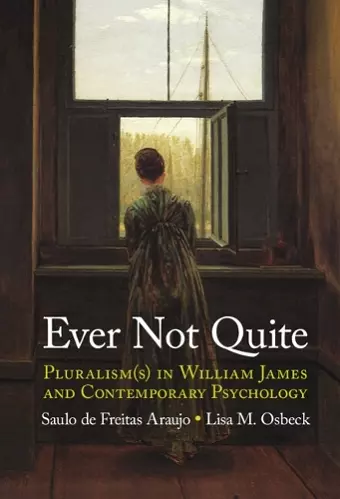Ever Not Quite
Pluralism(s) in William James and Contemporary Psychology
Lisa M Osbeck author Saulo de Freitas Araujo author
Format:Hardback
Publisher:Cambridge University Press
Published:29th Jun '23
£95.00
Supplier delay - available to order, but may take longer than usual.

Examines ideas of pluralism in William James's writings and contemporary psychology.
Founding psychologist William James famously called for pluralism, valuing psychology's range of theoretical and philosophical foundations, methods and perspectives. In this book, Araujo and Osbeck investigate the meanings of pluralism across James's writings, connecting them to psychological research and theory today.William James made many references to pluralism throughout his career. Interestingly, many contemporary psychologists also discuss pluralism and indeed call for pluralism as a corrective to the discipline's philosophical and methodological foundations. Yet, pluralism and the purposes to which it is applied are understood in a variety of ways, and the relation of contemporary pluralism to the pluralism(s) of William James is uncertain. This book offers conceptual clarification in both contexts, first distinguishing diverse senses of pluralism in psychology and then systematically examining different forms of pluralism across the writings of James. A comparison of meanings and analysis of implications follows, aimed at illuminating what is at stake in ongoing calls for pluralism in psychology.
'This book presents abundant evidence for the pluralism in William James's understanding of the human thought and action. It documents James's close reading of psychological and philosophical research and theorizing and shows that he intuited the directions of later psychological science. Holding this book's insights alongside the work of contemporary psychology offers potential to 'stretch the boundaries of psychological science.' For James's deliberate explorations, Araujo and Osbeck are sure-footed and intelligent guides.' Paul Croce, Stetson University
'This book gives a lucid overview of the pluralistic position(s) articulated by William James and teases out insights we might glean from James for contemporary discussions about pluralism in psychology. The authors reconstruct how James's views about pluralism evolved over time and take a broad view of how they fit within (but are not reducible to) other well-known aspects of James intellectual project. An important contribution to the James scholarship, opening up exciting new avenues for future research in theoretical psychology.' Uljana Feest, Leibniz Universität Hannover, Germany
'Araujo and Osbeck's volume marks the most thorough examination to date of the nature and implications of the many uses of 'pluralism' in contemporary psychology. The authors stimulate reflection on these uses in relation to a broad range of William James's scholarly productions and correspondence, a formidable task to which the authors bring nuance, humility, and insightfulness.' Kevin P. Weinfurt, Duke University
'Saulo Araujo and Lisa Osbeck have written a scholarly masterpiece that takes the pluralistic bull by its historical, disciplinary, and conceptual-analytic horns, shedding much-needed light on a much-used concept. In demonstrating how various contemporary positions on pluralism reflect and depart from James's views, the authors open 'new paths for encouraging psychologists to reflect on James's pluralistic philosophy.' Ever Not Quite is sure to inspire new ways to tackle psychology's age-old problems – be they metatheoretical, theoretical, methodological, or practical. I predict it will become a classic in our time and beyond.' Barbara S. Held, Bowdoin College, USA
ISBN: 9781108845021
Dimensions: 235mm x 158mm x 16mm
Weight: 420g
300 pages